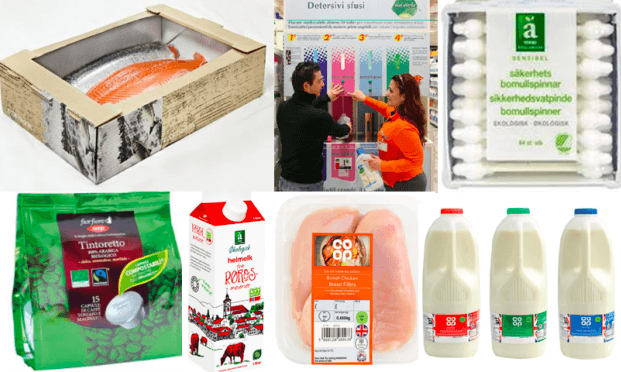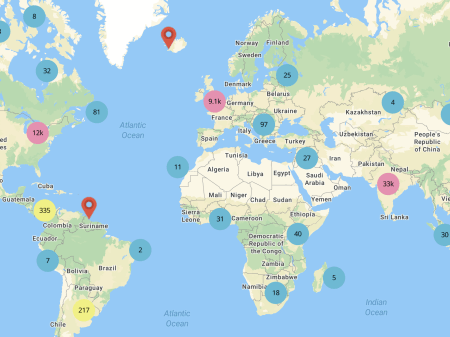
On 14 March the European Union voted on the draft amendments to four waste-management directives in an attempt to progress towards a more resource-efficient and circular economy. Plastic is one of five priorities in the “EU action plan for the Circular Economy”, particularly since many environmental issues result from very low reuse and recycling rates for end-of-life plastics.
Across the continent, Euro Coop members are already working to address the problem of plastic waste. In 2014 Co-op Italy launched compostable coffee capsules, which can be placed directly into the municipal collection for organic waste. In addition, since then, Italian retailer has been selling in-store bulk detergent dispensers and sold around 200m biodegradable bags.
Similarly, Coop Norway launched cotton buds that have paper sticks instead of plastic ones and collaborated with the supplier of their own-brand organic milk to make the plastic caps of bottles sold on Coop Norway fully recyclable.
In the UK the Co-operative Group pledged to ensure that by 2020 around 80% of the packaging from its private label products would be easy to recycle. The retailer is currently simplifying pots, tubs and trays to make it more attractive for local authorities to collect them for recycling.
Finland’s S Group has also developed a new fibre-based packaging solution for fish products. Known as the EcoFishBox, the packaging is made of renewable wood fibre, which makes it 100% recyclable. Furthermore, the Finnish co-op started a network of eco take-back points to ensure cost-effective collection and waste management of consumer packaging materials such as cardboard, metal, glass and plastic.
Coop Italy, Coop Norway, the Co-operative Group and S Group ban microbeads in all their own label products. Read more about their initiatives in Euro Coop’s snapshot.




